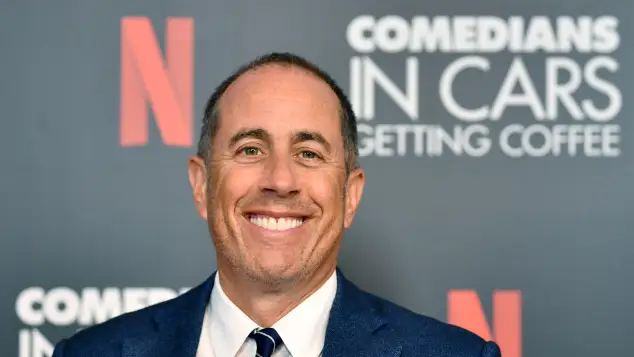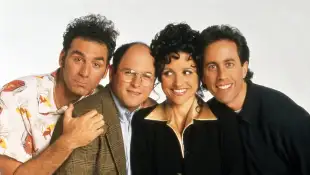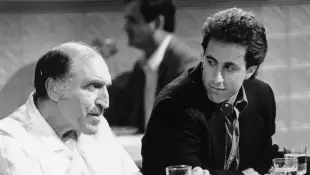- Jerry Seinfeld believes there is a comedy crisis
- He wants to return to the way things were
- THIS is how Jerry sees comedy today
In an era where political correctness dominates, comedy titan Jerry Seinfeld voices his concerns on how it's impacting the world of comedy. During a candid chat on the 'New Yorker's Radio Hour', Seinfeld criticizes the extreme left and political correctness for the drought of comedic content on television, revealing his struggles and the freedom stand-up comedy offers in contrast.
Seinfeld has never not been outspoken
"Nothing really affects comedy. People always need it," Jerry Seinfeld passionately expressed on a recent episode, and his opinion will not be going unnoticed by other comics.
The comedy world is in turmoil, according to Seinfeld, with TV viewers left yearning for the laughs that classics once provided. The culprit? An overzealous embrace of political correctness spearheaded by the extreme left, Seinfeld argues.
"It used to be that you'd go home at the end of the day, most people would go, ‘Oh, ’Cheers' is on. Oh, ‘M.A.S.H.’ is on. Oh, ‘[The] Mary Tyler Moore [Show]’ is on, ‘All in the Family’ is on.' You just expected [there will] be some funny stuff we can watch on TV tonight."
"Well, guess what? Where is it? Where is it? This is the result of the extreme left and P.C. c--p and people worrying so much about offending other people."
The Fight for Funny
But it's not all doom and gloom, as Seinfeld sees a beacon of hope in stand-up comedy.
"Now they're going to see stand-up comics because they are not policed by anyone. The audience polices us. We know when we're off track. We know instantly. And we adjust to it instantly," Seinfeld said. "But when you write a script, and it goes into four or five different hands, committees, groups – ‘Here’s our thought about this joke' – well, that's the end of your comedy."
Unfettered by committees and censorship, stand-up remains a raw, unpoliced frontier where comedians can truly connect with their audience. "The audience polices us," Seinfeld notes, highlighting the instant feedback loop that keeps stand-up comedians in check.
"They move the gates, like in skiing," he said. "Culture – the gates are moving. Your job is to be agile and clever enough that wherever they put the gates, I'm going to make the gate."
Seinfeld draws an intriguing analogy where it's a comedian's job to be agile, to weave through society's ever-changing boundaries of what's deemed acceptable.
And while TV comedy may be under siege, stand-up comedians are on the front lines, pushing boundaries and taking the heat.
Also interesting:
Despite the challenges, Seinfeld believes in the power of comedy to unite and provoke thought.
"With certain comedians now, people are having fun with them stepping over the line," he says, celebrating the stand-ups who dare to tread where TV fears to go. In the end, it's about taking risks, and for comedians like Seinfeld, the risk is worth the reward of a shared laugh.






